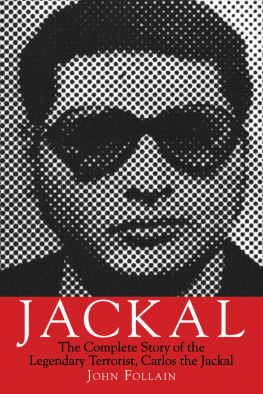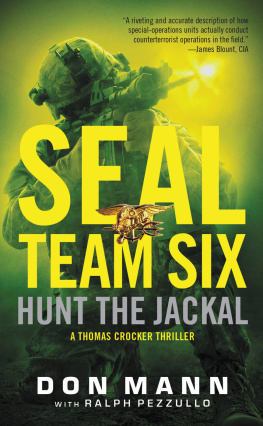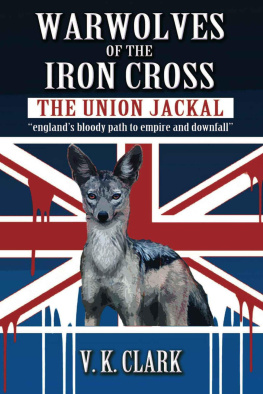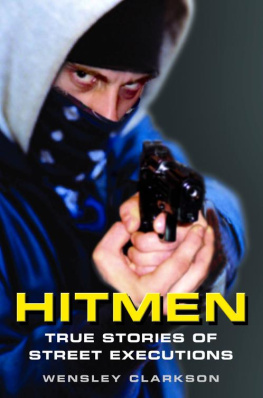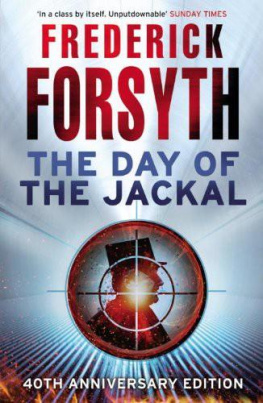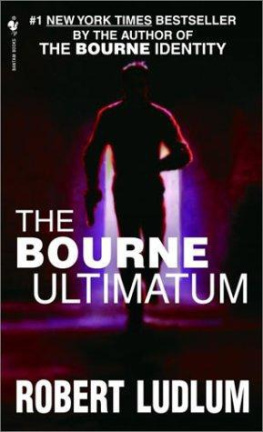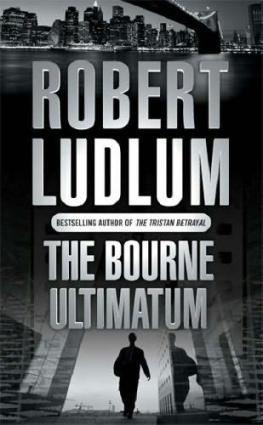All Rights Reserved. No part of this book may be reproduced in any manner without the express written consent of the publisher, except in the case of brief excerpts in critical reviews or articles. All inquiries should be addressed to Arcade Publishing, 307 West 36th Street, 11th Floor, New York, NY 10018.
Arcade Publishing books may be purchased in bulk at special discounts for sales promotion, corporate gifts, fund-raising, or educational purposes. Special editions can also be created to specifications. For details, contact the Special Sales Department, Arcade Publishing, 307 West 36th Street, 11th Floor, New York, NY 10018 or .
Arcade Publishing is a registered trademark of Skyhorse Publishing, Inc., a Delaware corporation.
Visit our website at www.arcadepub.com.
Follain, John.
Jackal : the complete story of the legendary terrorist, Carlos the Jackal
/ John Follain.
p. cm.
Includes bibliographical references and index.
ISBN 978-1-61145-026-2 (alk. paper)
1. Carlos, the Jackal. 2. Terrorists--Biography. 3. Terrorism. I.
Title.
HV6431.F64 2011
363.325092--dc22
[B]
Jackals inhabit more or less open country. Nocturnal animals, they usually conceal themselves by day in brush or thickets and sally forth at dusk to hunt. They live alone, in pairs, or in packs and feed on whatever small animals, plant material, or carrion is available. They follow lions and other large cats in order to finish a carcass when the larger animal has eaten its fill, and when hunting in packs they are able to bring down prey as large as antelopes and sheep.
Like other members of the genus, jackals sing at evening; their cry is more dismaying than that of the hyena.
PRINCIPAL CHARACTERS
THE CARLOS ORGANISATION
Johannes Weinrich Carlos's right-hand man, Paris and East Berlin
Ali Al Issawe Syrian intelligence officer, also a key Carlos accomplice
Magdalena Kopp Carlos's first wife
Hans-Joachim Klein Member of West German Revolutionary Cells
Gabriele Krcher-Tiedemann Member of West German Revolutionary Cells
Nydia Tobon Colombian lawyer, and Carlos's lover, London
Fouad Awad Alias Antonio Dagues-Bouvier, Lebanese former army officer
Bruno Brguet Swiss militant
Christa-Margot Froelich West German teacher, former member of the Red Army Faction
THE PALESTINIANS
Dr George Habash Founder and leader of the Popular Front for the Liberation of Palestine (referred to as the Popular Front)
Dr Wadi Haddad Chief of foreign operations, Popular Front
Bassam Abu-Sharif Chief recruiting officer, Popular Front
Mohamed Boudia Chief European representative, Popular Front
Michel Moukharbal Boudia's successor
THE FRENCH
Count Alexandre de Marenches Chief, Service de Documentation Extrieure et de Contre-Espionnage (SDECE, the foreign intelligence service)
Pierre Marion De Marenches's successor at the SDECE, which he renamed the Direction Gnrale de la Scurit Extrieure (DGSE)
Yves Bonnet Chief, Direction de la Surveillance du Territoire (DST, the counter-intelligence service)
General Philippe Rondot Arabist, associated with the SDECE and then the DST
Commissaire Jean Herranz Chief, B-2 Middle East division, DST
Commissaire Pierre Ottavioli Chief, Brigade Criminelle (police criminal investigation unit)
Gaston Defferre Interior Minister
Charles Pasqua One of Defferre's successors as Interior Minister
Jean-Louis Bruguiere Chief investigating magistrate, antiterrorism section, Paris
Jacques Verges Carlos's lawyer
THE AMERICANS
Duane R. Clarridge Deputy chief, Near East Division for Arab Operations, CIA, then Head of Counter-Terrorist Centre, CIA
John Siddel Head of Paris station, CIA
Mark Palmer Deputy Assistant Secretary Responsible for Eastern Europe and the Soviet Union, State Department
THE EAST GERMANS
General Erich Mielke Minister of State Security, or the Stasi secret police
General Markus Wolf Chief, Stasi foreign intelligence
Colonel Harry Dahl Chief, counter-terrorism, Stasi
Lieutenant-Colonel Helmut Voigt Chief, international counter- terrorism division, Stasi
THE HUNGARIANS
General Miklos Redei Chief, counter-intelligence, State Security
Colonel Andreas Petresevics Chief, counter-terrorism unit
THE SYRIANS
Hafez al-Assad President
Rifaat al-Assad Hafez's brother, Chief of the Defence Brigades
General Mohamed Al-Khuli Chief, air force intelligence
THE SUDANESE
Sheik Hassan al-Turabi Speaker of Parliament
General Hachim Abou Zeid Chief, Sudanese secret service
ILLUSTRATIONS
Between pages 174 and 175
1 Jos Altagracia Ramrez Navas, with two of his sons, Ilich and Lenin
2 Ilich's mother, Elba Maria Snchez
3 Ramrez Navas holds a photograph of his favourite son
4 El Gordo: Ilich's identity card from the Fermin Toro school
5 Carlos photographed by French counter-intelligence
6 Tell them I'm the famous Carlos: Carlos at Algiers airport
7 Gabriele Krcher-Tiedemann: at Carlos's side in Vienna
8 The bombing of the Paris-Toulouse Capitole express
9 The bombing of the Rue Marbeuf off the Champs-Elyses
10 Joseph Edward Sieff, president of Marks and Spencer, with his wife
11 Louis Delamare, France's ambassador to Beirut
1213 DST inspectors Raymond Dous and Jean Donatini
14 Count Jacques Senard, France's ambassador to The Hague
15 Johannes Weinrich, Carlos's right-hand man
16 Carlos, his wife Magdalena Kopp, and their daughter Elbita
17 The Jackal's lair: the home of Angela Otaola
18 Carlos lived like a king in Hungary
19 Carlos's villa on the Hill of Roses in Budapest
20 The last refuge in Khartoum, Sudan
21 Carlos's living room
22 Reading matter on Carlos's desk
23 Carlos's Venezuelan passport photograph
24 Carlos - the Peruvian economist Carlos Martinez Torres
25 Polaroid snap which Carlos sent to his father from jail
Frank Spooner Pictures
SYGMA, Paris
Camera Press Ltd
PROLOGUE
The evening of Sunday, 30 December 1973 was so cold that the tall, heavily built man who strode through St John's Wood wore a woollen scarf over the lower part of his face, the fur-lined hood of his green army surplus parka over his head. In the pocket of his parka was an Italian-made, 9mm Beretta pistol.
As on many London streets, half the lights of Queen's Grove had been turned off because of the energy crisis caused by an Arab oil embargo, which had come on top of a coal miners strike. The Heath government had appealed for people to use coal, electricity and petrol sparingly. Industry had slowed to a three- day week. That morning the Queen had set an example when she had dispensed with her usual cortge to travel to the parish church at Sandringham by mini-bus - only to find Prince Charles appearing alongside his friend Lady Jane Wellesley, and drawing a record postwar crowd of 10,000 people to the royal estate, virtually all of whom had come by car.

